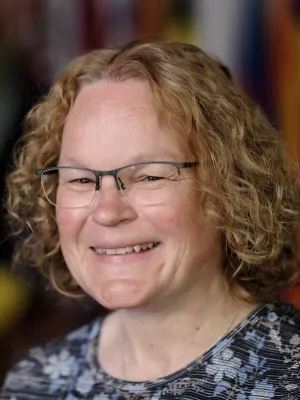
Jenny Palm
Head of department

Energy communities in different national settings – barriers, enablers and best practices
Author
Summary, in English
The NEWCOMERS project aims to explore how new clean energy communities (ECs) develop, under which polycentric settings ECs evolve and under what conditions such initiatives are suppressed. At a national level, the project will assess socio-economic, technical, institutional characteristics and actors supporting the emergence of new clean energy communities.
In Deliverable 3.1. and 3.2. the national characteristics of the six NEWCOMERS countries (Germany, Italy, the Netherlands, Slovenia, Sweden, and the United Kingdom) were described and compared. In this report, the six countries will be compared, with the aim to identify barriers and enablers for new clean energy communities to emerge in different national settings and to discuss the potentials for learning between different countries. The focus for the analysis lies on socio-economic conditions, the technical system, the institutional setting, and actors on the electricity market.
Identified barriers are amongst others lack of knowledge, centralised energy production systems, too broad or too narrow definitions of ECs in regulations and policies, lack of tailormade policies for ECs and few dominating market actors. Identified enablers are for example trust, access to finance, a country’s fossil fuel dependency, a liberalised market, Feed-in Tariffs (FiTs), and umbrella organisations.
Several best practices supportive for clean energy communities to emerge were identified in the different NEWCOMERS countries and these are meant to be used as inspiration for others. These are for example virtual power plants, virtual net metering, government strategy for ECs, tailormade regulations, and umbrella organisations.
National settings supporting ECs to emerge were identified and included the existence of a definition of EC in a national strategy or the legal framework, high GDP/capita which lie grounds for households to join an EC, fossil fuel dependency, tailormade programmes and schemes for ECs, decentralised market with multiple of actors and decentralised production, and umbrella organisations to guide ECs.
National settings inhibiting ECs to emerge were also identified. These were lack of a national definition of ECs, lack of trust in others and to the legal and political system, a fuel mix with a high share of renewables which makes a transition less urgent, a high share of individual ownership in for example PVs, centralised electricity market with few dominating actors and centralised production, and lack of umbrella organisations that can push the idea with ECs and facilitate for new actors to enter the market.
The Clean Energy for all Europeans Package (CEP) has not been analysed per se but is anyway very present in the report. Collectively the CEP has the potential to become an important enabler for ECs to emerge. Nonetheless, Member States retain considerable flexibility in how the CEP is transposed and for that reason the impact of the CEP on the emergence of ECs in the NEWCOMERS countries will need to be assessed in future research.
In Deliverable 3.1. and 3.2. the national characteristics of the six NEWCOMERS countries (Germany, Italy, the Netherlands, Slovenia, Sweden, and the United Kingdom) were described and compared. In this report, the six countries will be compared, with the aim to identify barriers and enablers for new clean energy communities to emerge in different national settings and to discuss the potentials for learning between different countries. The focus for the analysis lies on socio-economic conditions, the technical system, the institutional setting, and actors on the electricity market.
Identified barriers are amongst others lack of knowledge, centralised energy production systems, too broad or too narrow definitions of ECs in regulations and policies, lack of tailormade policies for ECs and few dominating market actors. Identified enablers are for example trust, access to finance, a country’s fossil fuel dependency, a liberalised market, Feed-in Tariffs (FiTs), and umbrella organisations.
Several best practices supportive for clean energy communities to emerge were identified in the different NEWCOMERS countries and these are meant to be used as inspiration for others. These are for example virtual power plants, virtual net metering, government strategy for ECs, tailormade regulations, and umbrella organisations.
National settings supporting ECs to emerge were identified and included the existence of a definition of EC in a national strategy or the legal framework, high GDP/capita which lie grounds for households to join an EC, fossil fuel dependency, tailormade programmes and schemes for ECs, decentralised market with multiple of actors and decentralised production, and umbrella organisations to guide ECs.
National settings inhibiting ECs to emerge were also identified. These were lack of a national definition of ECs, lack of trust in others and to the legal and political system, a fuel mix with a high share of renewables which makes a transition less urgent, a high share of individual ownership in for example PVs, centralised electricity market with few dominating actors and centralised production, and lack of umbrella organisations that can push the idea with ECs and facilitate for new actors to enter the market.
The Clean Energy for all Europeans Package (CEP) has not been analysed per se but is anyway very present in the report. Collectively the CEP has the potential to become an important enabler for ECs to emerge. Nonetheless, Member States retain considerable flexibility in how the CEP is transposed and for that reason the impact of the CEP on the emergence of ECs in the NEWCOMERS countries will need to be assessed in future research.
Department/s
- The International Institute for Industrial Environmental Economics
Publishing year
2021-05-31
Language
English
Publication/Series
NEWCOMERS
Links
Document type
Report
Topic
- Other Earth and Related Environmental Sciences
- Social Sciences Interdisciplinary
Keywords
- energy community
- barriers
- enablers
- national setting
- Best practices
Status
Published
Project
- NEWCOMERS (New Clean Energy Communities in a Changing European Energy System)

